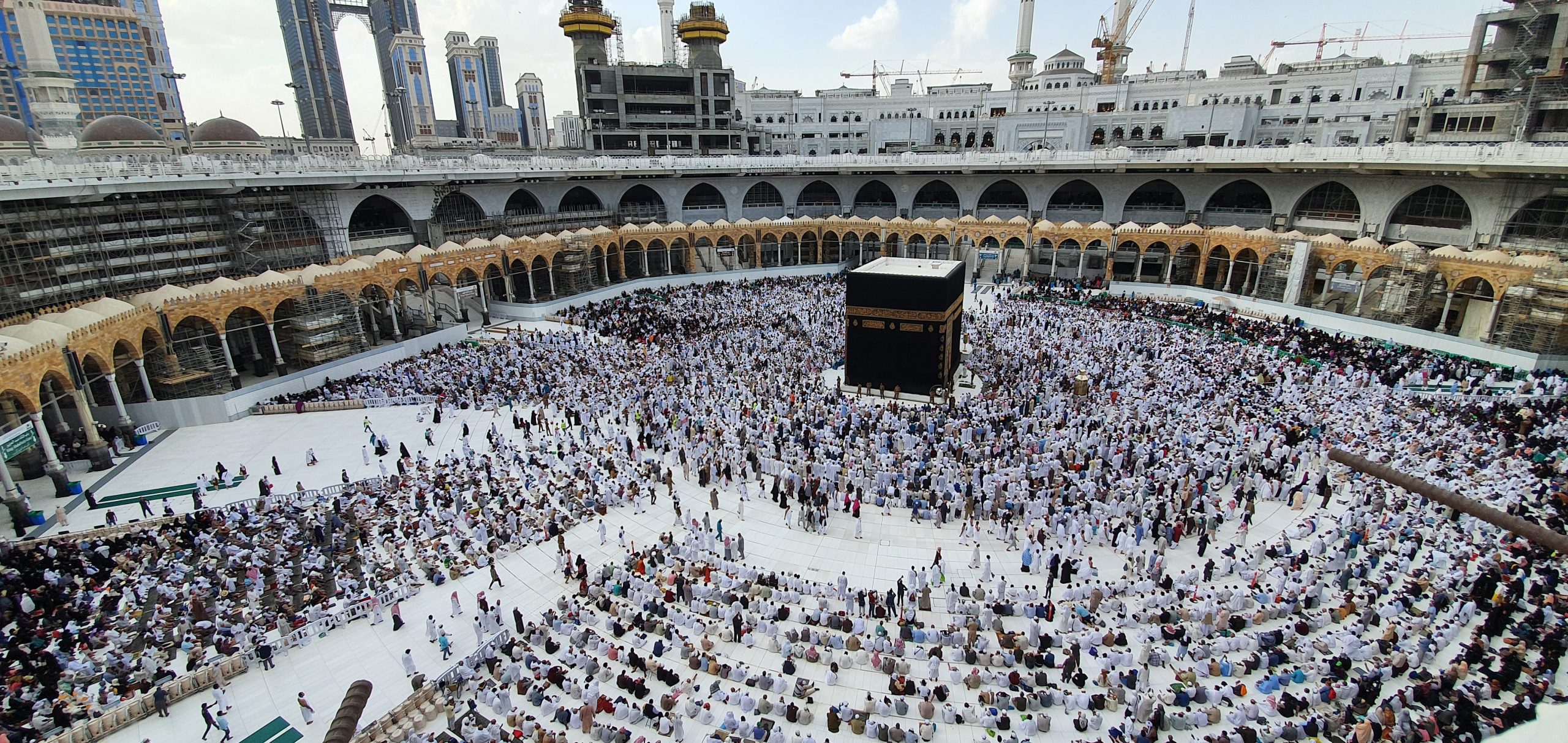The number of pilgrims from the West Bank and Gaza during last year’s Hajj season reached 6,600.
Saudi Arabia’s King Salman Al Saud has ordered for 1,000 Palestinian pilgrims including relatives of martyrs and prisoners to be approved for this year’s Hajj season.
On Saturday, the Saudi Press Agency (SPA) reported the decision, which it said comes under the Kingdom’s annual Hajj guests programme.
“The continuation of this generous gesture toward the Palestinian who perform Hajj every year at the expense of the Custodian of the Two Holy Mosques is a reaffirmation of its positive results and the depth of the relationship that the Custodian of the Two Holy Mosques has with the Palestinian people,” Abdullatif Al Al-Sheikh, Saudi Arabia’s Minister of Islamic Affairs, said.
This year’s Hajj season is set to begin on 26 June, with more than 2.6 million people expected to perform the pilgrimage in the coming weeks.
The number of pilgrims from the West Bank and Gaza during last year’s Hajj season reached 6,600 as Saudi Arabia lifted all restrictions imposed at the time of the pandemic.
Under the ongoing Israeli occupation of Palestine, Palestinian worshippers often struggle to travel for Hajj. Palestinians from the West Bank are forced to travel through Jordan, while those from Gaza are made to travel through Egypt.
In May, Israeli media reported “advanced contacts” between Riyadh and Tel Aviv to allow direct flights for Palestinian pilgrims. Unlike some countries in the region—including the United Arab Emirates and Bahrain—Saudi Arabia has yet to establish diplomatic ties with Israel.
Saudi Arabia has not publicly commented on such talks.
Restrictions on movement
Israel’s restrictions on the mobility of Palestinians has been widely slammed by right groups as “draconian” measures that fall under its apartheid system. The occupying state places travel bans on Palestinians, including activists and former detainees as well as their relatives.
Palestinians within Palestine often cannot meet one another, with Gazans in particular facing extreme isolation due to the years-long Israeli siege.
Gazan patients suffering from cancer often struggle to access treatment and are forced to live under the mercy of Israeli permits which allow them to exit the territory based on approvals.
Meanwhile, East Jerusalem and the rest of the West Bank are separated by a 700 kilometer wall, widely known as the Apartheid Wall—ruled as illegal by the International Court of Justice.
As a result, Palestinians are segregated, with permits required to cross checkpoints.
In July 2018, the United Nations Office for the Coordination of Humanitarian Affairs recorded 705 permanent obstacles across the West Bank. The figure was 3% higher than records from December 2016.
The obstacles include 140 fully or occasionally-staffed checkpoints and 251 other unstaffed obstacles ranging from trenches to roadblocks.







